PICK OF THE MONTH
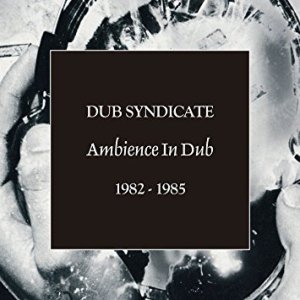 Dub Syndicate
Dub Syndicate
Ambience in Dub: 1982-1985 (5 discs)
On-U Sound (dist. Redeye)
ONUCD137
It’s hard to overstate the importance of Dub Syndicate’s early albums, not only for the development of the UK roots reggae sound, but for that of British (and therefore American) dance music itself over the next couple of decades. The combination of deep, elephantine roots and dancehall rhythms (mainly delivered by the redoubtable duo of bassist Flabba Holt and drummer Style Scott) and the experimental, sometimes downright crazy production techniques of producer and label head Adrian Sherwood was a paradigm-shifting one; I would argue that you can draw a more-or-less straight line from the avant-garde dub of these early recordings to the emergence of jungle, drum’n’bass, and eventually dubstep one to two decades later. (And let’s also remember that Sherwood and On-U Sound are almost singlehandedly responsible for bringing the great Prince Far I to international public notice during the years prior to his tragic death in 1983.) This box set brings together the first four Dub Syndicate albums (The Pounding System, One Way System, North of the River Thames, and Tunes from the Missing Channel) plus an additional disc’s worth of mostly-previously-unavailable dubplates and alternate versions, along with a booklet of historical liner notes. Three of the individual albums feature bonus tracks as well. Most reggae releases from the 1980s sound incredibly dated today — but this music was so wonderfully strange at the time that it sounds just as fresh now as it did then. I don’t know if I can safely say that this box set belongs in every library collection, but it certainly belongs in any library that collects heavily in reggae or dance music.
CLASSICAL
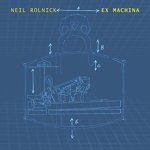 Neil Rolnick
Neil Rolnick
Ex Machina (2 discs)
Innova (dist. Naxos)
950
Contemporary art music cannot very often be fairly characterized as “fun,” but that’s the word that kept coming to mind as I listened to this wonderful two-disc collection of pieces by composer Neil Rolnick. It consists of works that involve interactions between live performers and sounds generated by laptop computer, as well as two computer-based works that consist of manipulated recordings: one is a delightful deconstruction of Everly Brothers songs, and the other is a conceptually similar but sonically very different treatment of recordings of folksongs. The other compositions involve the computer either sending back modified versions of sounds created by the live performer (in the case of Silicon Breath, featuring saxophonist Ted Nash) or accompanying the live performer (in the cases of Cello Ex Machina with Ashley Bathgate and Dynamic RAM & Concert Grand with Kathleen Supové). All of it is simultaneously challenging and supremely enjoyable. Recommended to all libraries.
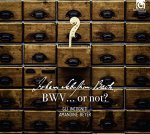 Various Composers
Various Composers
BWV… or Not?: The Inauthentic Bach
Gli Incogniti / Amandine Beyer
Harmonia Mundi
HMM 902322
The baroque era was a period when copyright protection (at least as we understand it today) really didn’t exist, and when composers stole from each other with impunity. Sometimes the thievery was both intended and understood as homage — but not always. This program consists of works that have appeared in the famous Bach-Werke-Verzeichnis, despite that fact that J.S. Bach did not actually compose them. Chamber works by his son Carl Philipp Emanuel, by Johann Gottlieb Goldberg, and by Johann Georg Pisendel are included here, as well as a transcription Bach made of a work by Silvius Weiss and a couple of pieces that are still formally attributed to Bach but the authenticity of which is under some dispute. The playing by Gli Incogniti is very fine, and the album is outstanding on its strictly musical merits alone, regardless of the academic issues.
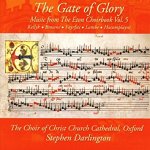 Various Composers
Various Composers
The Gate of Glory: Music from the Eton Choirbook Volume 5
The Choir of Christ Church Cathedral, Oxford / Stephen Darlington
Avie (dist. Naxos)
AV2376
Rick’s Pick
This glorious series continues with a fifth installment showcasing English Renaissance choral works preserved in the Eton Choirbook, this time featuring works by Hugo Kellyk, John Browne, Robert Fayrfax, Walter Lambe, and Robert Hacomplaynt. The Lambe entry is a world-premiere recording of his Marian motet Gaude flore virginali, released just in time for the Christmas season. As always, the Christ Church Cathedral Choir sings with a luminous tone, and both the performances and the compositions are swooningly gorgeous. This whole series is a must for all classical collections.
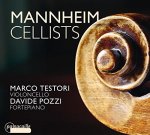 Various Composers
Various Composers
Mannheim Cellists
Marco Testori; Davide Pozzi
Passacaille (dist. Naxos)
1018
 Various Composers
Various Composers
Entrez, le Diable!: The Virtuoso Cello at the Concert Spirituel
Juliana Soltis; Adaiha MacAdam-Somer; Lucas Harris; Justin Murphy-Mancini
Acis (dist. Albany)
APL72276
Rick’s Pick
Here are two celebrations of the cello’s place in 18th-century chamber music, one focusing on composers of the Mannheim court and the other on works featured at the Concert Spirituel — an annual series of public concerts put on by the French court between 1725 and 1790. The Mannheim cellist/composers featured on the first recording are all names with which I confess to being completely unfamiliar (Triklir? Filz? Schetky?), and I’m very pleased to have made their acquaintance here on this collection of sonatas for cello and fortepiano, even if Marco Testori’s intonation struck me as being just slightly off from time to time. The Concert Spirituel collection features cellist Juliana Soltis, and is a somewhat more decorous affair featuring works by Salvatore Lanzetti, Martin Berteau, François Martin, and the brilliant virtuoso/composer Jean-Baptiste Barrière. Soltis also plays a baroque cello, and is somewhat more solid than Testori — without failing to communicate any of the light and fire of these works. Both are recommended, the latter getting the edge.
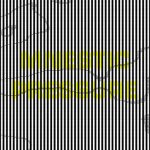 Lee Gamble
Lee Gamble
Mnestic Pressure
Hyperdub (dist. Redeye)
HDBCD037
I hope you readers can appreciate what a bold move I’m making by putting this release in the Classical section. Obviously, by doing so I’m making a point: we’ve arrived at a stage in the development of Western music at which the line between popular and art music is becoming blurred, especially in the context of electronic music. Lee Gamble, formerly a purveyor of underground dance music, here makes a foray into something very different: electronic compositions that remind me an awful lot of music I was listening to by the likes of Charles Wuorinen and Bertram Turetsky in the 1970s. Granted, there are a few more beats here, but they’re few and far between; mostly this is remarkably abstract music, very bleepy and bloopy, and much of it is non-tonal (though not exactly atonal). I’ll tell you what this music is not: it’s not dance music.
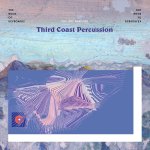 Philippe Manoury
Philippe Manoury
The Book of Keyboards
Third Coast Percussion
New Focus
FCR187
Rick’s Pick
French composer Philippe Manoury writes percussion music that is brutally demanding, in terms of both the technical requirements it places on the musicians, and the technical requirements for simply getting ready to play it. The six-movement title work (and the 22-minute Métal, which follows it on the program) require not only traditional percussion instruments like marimbas, vibraphones, and Thai gongs, but also the construction of a multipart instrument called the Sixxen. But although the music is hugely demanding of the performers, it’s quite accessible and enjoyable for the listener. The dense flurries of notes are impressive but also beautiful, and there are strong nods to familiar genres like gamelan and 20th-century minimalism in the mix. Strongly recommended to all libraries.
JAZZ
 Champian Fulton
Champian Fulton
Christmas with Champian
Self-released
No cat. no.
Rick’s Pick
If your library collects Christmas music, then be quick to snap up the latest album from Champian Fulton, who has emerged in recent years as the most exciting vocal and pianistic talent on the straight-ahead jazz scene. This is a very nice collection of holiday standards (“White Christmas,” “The Christmas Song,” etc.) and more unusual choices: Willie Nelson’s “Pretty Paper,” for example, and an old Los Panchos & Eydie Gormé number titled “Gracias à Dios,” as well as a lovely original. As always, Fulton and her band swing powerfully and she sings like an unusually creative and playful angel. And her dad, trumpeter Stephen Fulton, makes a guest appearance as well. There’s simply nothing about this album that isn’t delightful, and since there’s a good chance that your library serves some of her growing legion of fans, I’d strongly recommend this one to all collections.
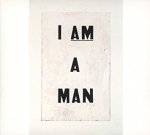 Ron Miles
Ron Miles
I Am a Man
Yellowbird
yeb-7776
Rick’s Pick
If you recognize the title of this album as an echo of the Civil Rights movement, you’re correct. As Miles himself puts it in the press materials, “We’re in some trying times in 2017, that’s for sure. But we’ve seen this before. Black folks have had to do this over and over again, fighting injustice and finding a positive solution.” Hence the tone of this highly discursive, intermittently lyrical, and simultaneously hopeful and angry album. Miles plays the cornet and is accompanied by guitarist Bill Frisell (brilliantly chameleonic as always), drummer Brian Blade, bassist Thomas Morgan, and the outstanding pianist Jason Moran. His compositions call for everyone to play in an unusually egalitarian style, sometimes more or less soloing at once, sometimes playing carefully composed lines, but always sounding like a group of friends having a conversation rather than a jazz band taking turns soloing over a head. The depth of Miles’ musical intelligence has never been more perfectly displayed–and he has made plenty of outstanding albums. For all jazz collections.
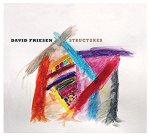 David Friesen
David Friesen
Structures (2 discs)
Origin
82744
Two discs, one live and one recorded in the studio, one a duo date with saxophonist Joe Manis and one a duo session with guitarist Larry Koonse. That’s what bassist/composer David Friesen is offering us here, and it’s both aptly titled (don’t be fooled by the occasionally free-sounding passages) and beautifully played. My preference is for the second disc: bass and saxophone makes for pretty arid musical textures, and while Friesen and Manis play off each other beautifully, the richer sounds of Friesen and Koonse are more satisfying to me. But your mileage may vary, and either way this album would make a great addition to any jazz collection.
 Paa Kow
Paa Kow
Cookpot
Paa Kow Music
No cat. no.
The album title is perfect: this Ghana-born, Denver-based bassist, drummer, singer and composer makes music that simmers and bubbles with three main ingredients: highlife, funk, and jazz. I couldn’t decide whether to place this one in the Jazz section or the World/Ethnic section, but I settled on jazz because the horn charts just sound like big band to me. Some tracks feel like smooth jazz too (check out the Christ Botti-flavored “Forced Landing”), but all of it is pretty much sui generis. Paa Kow’s music is paradoxically dense but light, heavy but nimble. And funky funky funky.
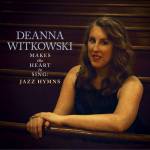 Deanna Witkowski
Deanna Witkowski
Makes the Heart to Sing: Jazz Hymns
Tilapia
0004
Rick’s Pick
Jazz arrangements of hymn tunes — I know, it’s one of those things where there’s two kinds of people in the world, those that love them and those that hate them. Count me among the former, which means that Deanna Witkowski’s latest speaks to my heart. It’s partly the tunes, but mostly it’s Witkowski’s genius for arrangement: she takes the stirring “Guide Us, O Thou Great Jehovah” and makes it into a gentle and contemplative swing number; “Fairest Lord Jesus” becomes a coruscatingly lovely solo-piano ballad; “All Creatures of Our Good and King” dances where the original marches. Witkowski’s interaction with bassist Daniel Foose and drummer Scott Latzky is always close and intuitive, but they mostly (and wisely) stay out of her way. This is a sumptuously beautiful record.
 Roswell Rudd
Roswell Rudd
Embrace
RareNoise
RNR085
It’s a little bit sobering to contemplate the fact that trombone legend Roswell Rudd is 81 years old — and amazing to hear how strongly he still plays. For his latest album he turns away from free and experimental jazz and towards standards, although (perhaps inevitably) he approaches them in a slightly idiosyncratic way: with a combo consisting of trombone, piano, and bass, plus a vocalist (the wonderful Fay Victor). So the songs are familiar (“Something to Live For,” “Can’t We Be Friends,” “House of the Rising Sun,” etc.) but the arrangements are not. And that’s what makes it fun — well, that and the fact that everyone on the date is a genius.
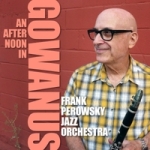 Frank Perowsky Jazz Orchestra
Frank Perowsky Jazz Orchestra
An Afternoon in Gowanus
Jazzkey
No cat. no.
Frank Perowsky is a brilliant reedman, but it’s as an arranger that he has made the biggest impact on the jazz world. I don’t review a lot of big band music — I usually find it too fussy and heavy — but this one really jumped out at me, largely because of the elegance and joyfulness of Perowsky’s arrangements. The program includes a setting of Bud Powell’s bop classic “Bouncin’ With Bud” (adopted by Buddy Rich for his Class of ’78 album), a fine old-school Perowsky clarinet solo on “Do Nothin’ Till You Hear from Me,” and a couple of very fun Perowsky originals. The 16-piece orchestra is light-footed and incredibly tight, and the album is a consistent pleasure. For all jazz collections.
FOLK/COUNTRY
 Ranky Tanky
Ranky Tanky
Ranky Tanky
Self-released
No cat. no.
The Gullah people are descendants of African slaves who have established a unique culture in the islands and lowland regions of South Carolina and Georgia. Their various folkways have attracted the attention of folklorists and anthropologists for many years, and for this album the Charleston-based jazz ensemble Ranky Tanky has adapted a set of traditional Gullah songs — not turning them into jazz numbers, but rather letting the songs themselves shape the way they use their instrumentation. A few of these songs will be familiar to many listeners: a very different version of “O Death” has been part of the bluegrass gospel tradition for some time (and was prominently featured in the movie O Brother, Where Art Thou?), and both “Turtle Dove” and “You Gotta Move” have made their way into the broader popular culture. These arrangements are idiosyncratic and make no attempt to be “authentic”; instead, they’re modern interpretations and deeply personal — and they’re both fun and moving.
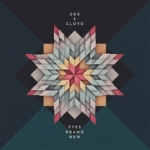 Zoe & Cloyd
Zoe & Cloyd
Eyes Brand New
Self-released
ZC02
What is “New Appalachian Music” anyway? Well, that depends. In recent years, it very often seems to involve spousal (or at least romantic) partnerships, and it usually means singer-songwriter material placed in the context of fiddles, banjos, and high-lonesome singing with modal harmonies. Sometimes it means the traditional topical tropes of mountain music (unwilling betrothal, separation from home, Christian devotion) and sometimes it means setting modern themes to ancient-sounding music. For the Asheville-based wife-and-husband duo of Natalya Zoe Weinstein and John Cloyd Miller it seems to mean all of these things simultaneously, complete with absolutely angelic singing and sneak-up-on-you melodic hooks. There are occasional nods to bluegrass — particularly explicitly on the wonderful gospel tune “Let’s All Go Down to the River” — but these songs mostly sound like new-old-time music, and all of it is quite wonderful.
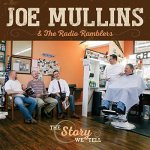 Joe Mullins & the Radio Ramblers
Joe Mullins & the Radio Ramblers
The Story We Tell
Rebel
REB-CD-1869
More solid, meat-and-potatoes traditional bluegrass from this, one of the most reliable bands still working in that genre. There aren’t that many banjo players who are also lead singers, but Joe Mullins has been performing both duties for ten years or so now at the head of his band the Radio Ramblers (to be fair, the band actually shares lead-vocal duties around quite a bit, but the Mullins leads tend to be the highlights). Stylistically and content-wise, there are no real surprises here: songs about working in the fields, about trains, about regretting the trouble you caused your parents, and about romantic disappointment are all here, plus one gospel tune. The subtle presence of percussion on a couple of tracks might irritate hardcore traditionalists, but everything else on this fine album is pure and straight-ahead.
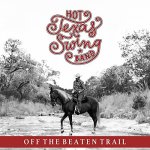 Hot Texas Swing Band
Hot Texas Swing Band
Off the Beaten Trail
Self-released
No cat. no.
The Hot Texas Swing Band are skilled and experienced purveyors of Western swing, that unique blend of jazz, country, norteño, and old-time music that developed in South Texas in the 1930s and was perfected by bands like the Light Crust Doughboys and Bob Wills and His Texas Playboys. I have to confess that I was hoping for just a little bit more hotness on this, the band’s fourth album, but there’s plenty to enjoy here even if the proceedings may come across a bit tame: a fine, chugging version of the classic “Cow Cow Boogie,” a good-humored take on the novelty tune “White Lightnin’,” the regretful waltz “My Blue Guitar.” Highlights include all of the tracks featuring vocals by either Selena Rosenbalm or Liz Morphis.
ROCK/POP
 J. Views
J. Views
401.1 (3 discs; deluxe reissue)
Self-released
No cat. no.
Jonathan Dagan’s album 401 Days was released last year and it generated enough interest that he decided to release a deluxe reissue this year, titled 401.1: three discs in total, featuring remixes and live orchestra versions of some of the songs. Dagan’s style is ethereal — some might say wimpy, but I would argue that his quietude is deceptive — and nicely juxtaposes light, falsetto vocals and a generally soft ambience with often-sturdy and sometimes downright funky beats. There’s also some wonderfully weird guitar stuff going on in there, and light as they often are, his melodies often soar. Among its best hooks is the line “We moved like we’re not afraid,” which inspired a small social movement. Very, very nice.
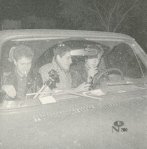 Hüsker Dü
Hüsker Dü
Savage Young Dü (compilation; 3 discs)
Numero Group
NUM200
If you’re a serious fan of hardcore punk icons Hüsker Dü (also known as the launching pad for postpunk superstar Bob Mould), then this comprehensive window into the band’s early years is just what you’ve been waiting for. Not only does it include pretty much everything the band recorded during the period 1979-1983 (including crappy cassette demos and live bootleg tracks), but it also includes the entirety of their early albums Land Speed Record and Everything Falls Apart, as well as comprehensive liner notes and rare photos. It’s fun to hear Mould’s melodic genius gradually emerging from the undifferentiated roar of the band’s earliest work, and of course headlong hardcore has its own sinus-clearing rewards. No one except maybe Bad Brains were doing it better than these guys in the early 1980s.
 Björk
Björk
Utopia
One Little Indian
tplp1381cd
So, a new Björk album. I’m sure I don’t need to tell you that it’s weird, weird, weird — or that it’s frequently utterly gorgeous. For this one she put together an eleven-piece Icelandic flute orchestra, which appears on several tracks, but most of the music seems to be sample-based and is more or less abstract. There is percussion, but not much that could be called a beat, let alone a groove; there are moments of soaringly beautiful melody, but not much that could be called a tune. The title track is one of the most affecting on the album: the flutes interlock in repeated patterns while the sounds of jungle birds interject regularly, and Björk’s voice comes in late in the track. Björk and someone named Arca co-produced the album, and as soon as I’m done typing this I’m going to see what more I can find out about him. If he’s Björk’s musical soulmate, as he seems to be, then this is going to be a fun adventure.
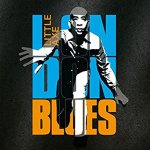 Little Axe
Little Axe
London Blues
Echo Beach
EB122
Rick’s Pick
Skip McDonald, who has recorded as a solo act under the name Little Axe for many years, may not be a household name — but it’s hard to imagine a household in America (or Europe, for that matter) that hasn’t heard him play. He got his start as part of the Sugarhill Gang, the in-house studio band that basically created the musical architecture for hip hop in the early 1980s. As a solo artist, he blends elements of the blues, hip hop, dub, gospel, and trip hop into a style that is uniquely and utterly his own. On his latest album he’s joined by fellow travelers Keith Leblanc (also a Sugarhill Gang alum), Doug Wimbish (ditto), Mark Stewart, and Jeb Loy Nichols on an album that is possibly the strongest of his long and storied career. A generous helping of dub versions makes the package that much more valuable. Highly recommended to all libraries.
 DJ Vadim & Blackstone
DJ Vadim & Blackstone
Double Sided
BBE (dist. Redeye)
BBE436ACD
Polymathic DJ and beatmaker DJ Vadim does wonderful stuff on his own, but he’s at his best when paired with a singer whose range and power give him plenty of room to move. Katrina Blackstone is his perfect foil: blessed with a rich, chesty voice and soulful, nimble delivery, she rides every beat he throws at her with apparent ease. Whether it’s the stutterstep trap of “Choose,” a neo-dancehall adaptation of the reggae classic “No No No,” or the slow burn of “Re Run,” she makes every track entirely her own. These two are a match made in heaven, and here’s hoping for another album from them sometime soon. (Or a batch of remixes!)
 Richard Thompson Band
Richard Thompson Band
Live at Rockpalast (3 CD/2 DVD)
MIG (dist. MVD)
MIG 90772
Rick’s Pick
Richard Thompson has been making brilliant English folk-rock for his whole career — a career now entering its sixth decade, astonishingly enough — and many would argue that his best work was with his then-wife Linda during the 1970s. Without wishing to take away anything from the monumental recordings they made together, I’m not sure he has ever been better than he was as a solo artist during the years immediately following their divorce, and that’s the period documented on these two concert recordings made in Hamburg and Cannes in December 1983 and January 1984. (They are documented here on three CDs, with the same programs in video form on two DVDs.) This is the classic version of his backing band: Dave Mattacks on drums, Dave Pegg on bass, and fellow Fairport Convention alumnus Simon Nicol on second guitar along with saxophonists Pete Thomas and Pete Zorn. They rip the doors off with contemporary material like “The Wrong Heartbeat,” “Hand of Kindness,” and “Tear Stained Letter,” as well as classics from the Richard & Linda Thompson era — in fact, over the course of these two concerts the band plays most of Shoot Out the Lights, widely considered not only the Thompsons’ finest moment, but also one of the best rock albums ever made. Thompson always saved his best guitar solos for a live setting, and there are plenty of those here. The band also plays the big-band novelty standard “Pennsylvania 6-5000.” He always did have a sense of humor. Strongly recommended to all libraries.
WORLD/ETHNIC
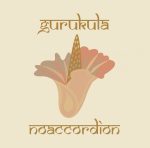 noaccordion
noaccordion
GuruKula
Self-released
No cat. no.
Ricks’ Pick
Onah Indigo refers to her music as “blissed-out minimal world trap,” which I guess works as well as any other designation, though much of her music resists any kind of real genre description. Her latest album is based on samples she recorded in the Krishnamurti Schools and in the rainforests of Kerala, India: choral chanting, insect and animal sounds, bespoke contributions from sitarist Benny Langfur and various percussionists, and the constant influence of loping trap beats and dubwise production techniques make this one of the most gently insistent, rhythmically complex, and emotionally compelling albums I’ve heard all year. I’ve listened to it over and over since receiving my review copy, and I bet your patrons will do the same. Strongly recommended to all libraries collecting dance music and worldbeat.
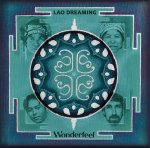 Wonderfeel
Wonderfeel
Lao Dreaming
Self-released
No cat. no.
Brace yourself for one of the weirdest, deepest, and frankly most befuddling excursions in intercultural fusion you’re likely to hear in a long time. Peet Wonderfeel (who reportedly has “a background in activism and healing,” as well as in punk rock) has taken field recordings of traditional Lao singing and playing and used them to create dark, funky, and deeply compelling musical collages. Although the means of production are electronic and digital, the source material is all acoustic and analog, and Wonderfeel does a great job of showing respect for that source material while still creating something brand-new with it. This music is at times frankly eerie and unsettling, but it’s never less than beautiful. Highly recommended.
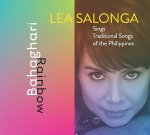 Lea Salonga
Lea Salonga
Bahanghari Rainbow
GLP Music
GLP1701
Lea Salonga is a popular singer, Broadway actor, and voiceover artist (who has voiced two Disney movie princesses), and a native of the Philippines. On this album she presents a program of traditional Philippino songs, drawn from the country’s three major cultural regions and sung in six of the country’s many languages — several of them currently endangered. The arrangements are minimal (mostly just voice and guitar or voice and piano), and Salonga’s voice is gorgeous. Any library collecting in ethnomusicology or world music traditions should snap this one up immediately.
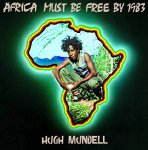 Hugh Mundell
Hugh Mundell
Africa Must Be Free by 1983 (reissue)
Greensleeves
VPGS7055
Rick’s Pick
Of all the (many) tragic heroes of reggae music, Hugh Mundell is perhaps the most heartbreaking. A precociously talented young artist, he recorded the tracks for this, his debut album, between the ages of 14 and 16. His fierce dedication to his Rastafarian beliefs and to the cause of social uplift shone through powerfully on these songs, which were mostly produced by the legendary Augustus Pablo and featured a who’s-who of top Jamaican session talent. (Two tracks were recorded by Lee Perry at the Black Ark studio.) And by the age of 21 he had been murdered, shot to death while sitting in his car with his wife. Africa Must Be Free by 1983 remains one of the defining documents of the roots reggae era, and is here lovingly reissued with a nearly full complement of dub versions. An essential purchase for all libraries with a collecting interest in reggae music.